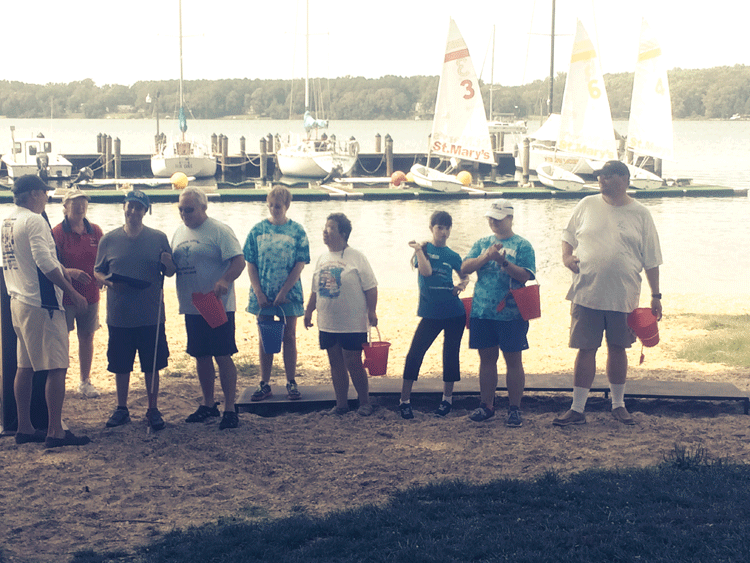The mission of Special Olympics is to provide year-round sports training and athletic competition in a variety of Olympic-type sports for persons eight years of age and older with intellectual disabilities, giving them continuing opportunities to develop physical fitness, demonstrate courage, experience joy, and participate in a sharing of gifts, skills, and friendship with their families, other Special Olympics athletes, and the community. There are several sports to compete in, including sailing. There are four training sites for sailing around Maryland: the Baltimore County Sailing Center, Baltimore’s Inner Harbor, Washington Sailing Center, and St. Mary's College of Maryland (SMCM).

The summer training session will run from June 5 to July 25 at Baltimore County Sailing Center (BCSC). BCSC expects 14-18 athletes this season, practicing for about three hours one night a week, for eight or nine weeks. Participants will be training on 420s, FJs, and Hobie 16 catamarans, choosing one of five levels of participation. In levels one through three, there are two Special Olympics athletes and a coach per boat. At level one, athletes take care of the main sail and jib trim. Level two consists of one athlete steering the boat and a partner managing the sails. In level three, the coach is allowed to talk athletes through the processes but cannot participate. At level four the two athletes are sailing by themselves, and in level five, one athlete is sailing single-handed.
All of this training is in preparation for the Maryland Special Olympics Regatta, to be held July 29-30 at St. Mary’s College of Maryland. Athletes have been competing at SMCM for the past 15 years, and this year around 45 athletes are expected.
Dan Flanigan has been very involved with the Maryland Special Olympics program for several years. He tells us it has been a “life changing experience” and that he has become life-long friends with an athlete he was partnered with when he first started volunteering. Now Flanigan runs the fleet at BCSC and is excited to have several new boats this year. More boats means the potential for more athletes, but only if they have enough volunteers to participate. If you are a sailor, you can volunteer to be a skipper on one of the boats, but if you are not a sailor you can still help out on shore, on chase boats, or on committee boats. Those interested can fill out an application here.




